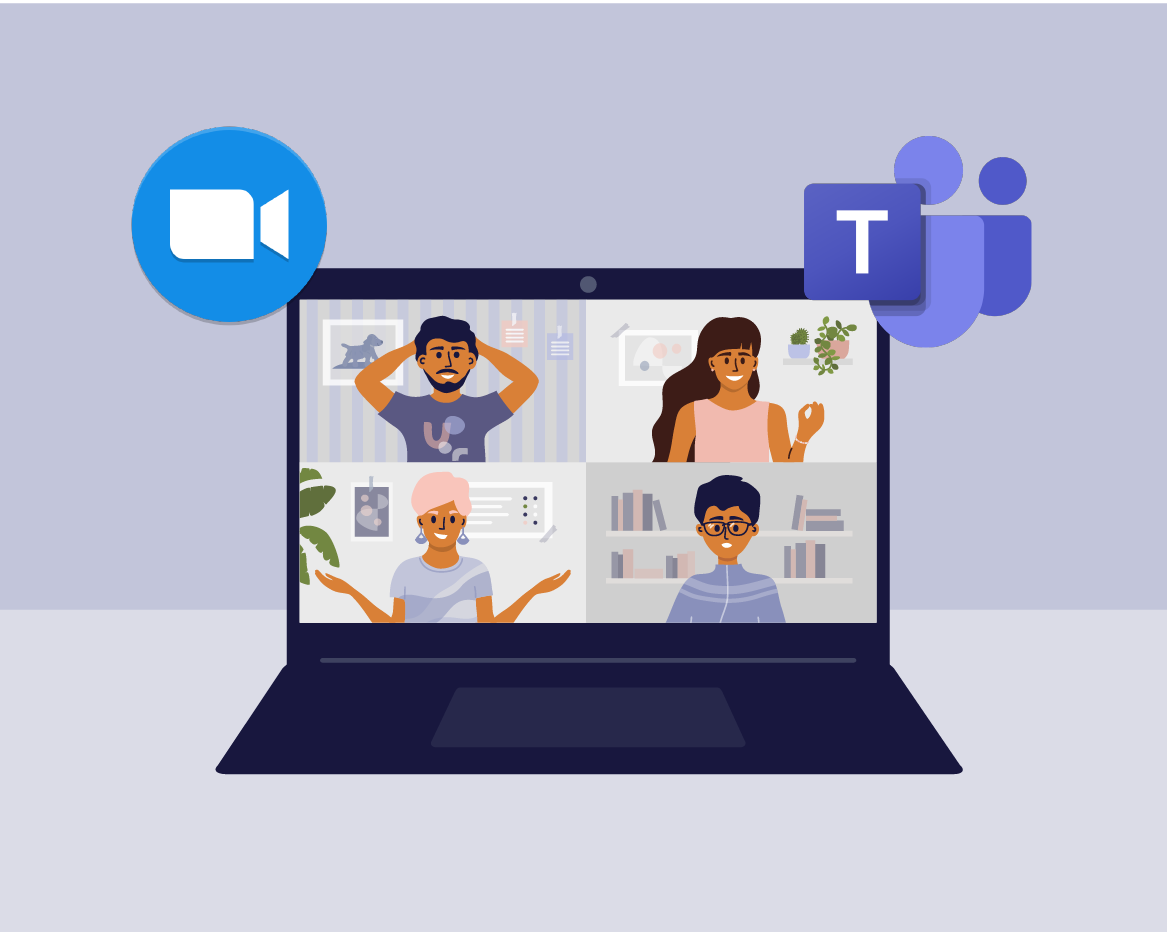Highlights from Microsoft's 2019 Flagship Expo
From the ethics of artificial intelligence to effective teamwork, to mental health in the workplace to how technology is saving lives, Microsoft’s Future Decoded expo had it all.

We’ve curated our favourites from this jam-packed two-day event and drizzled them with links to outstanding resources, many of which are newly published.
Major Tim Peake's stellar talk
Major Tim Peake knows a thing or two about teamwork. As the first British astronaut to visit the International Space station, he spent six months with crewmates Tim Kopra and Yuri Malenchenko orbiting 248 miles above the earth.
He talked tech and AI in space exploration and proved an inspiring and engaging speaker, raising laughs by blaming a spreadsheet for his infamous wrong number dialled from space.
Nice to know that, despite all of Major Peake’s incredible achievements, he remains a humble earthling: "I'm still blaming that on the software. I imported my contacts address book in Excel, and all the 9s got rounded up to 0s…"
Artificial Intelligence: a Competitive Advantage
“The results are clear. UK businesses that delay implementing AI at scale risk missing the boat on lowering costs, increasing competitive advantage and empowering their workers.”
- Cindy Rose, CEO, Microsoft UK
Artificial intelligence brings more power to our fingertips than the generations before us combined. But as a Microsoft report reveals that UK companies risk falling behind foreign rivals unless they use more AI, it seems many business leaders see AI as unattainable or esoteric.
“Organisations using AI are outperforming their competitors by 11.5%,” said Dr Chris Brauer of Goldsmiths University. “In the face of unprecedented economic uncertainty, it’s a boost that UK businesses can ill afford to pass up.” The stats are compelling:
- Only 24% of UK organisations have a strategy for AI, while 76% are unclear.
- 74% of business leaders doubt the UK has the structures in place to be a world leader in AI.
- 96% of employees say their boss has never consulted them about the introduction of AI.
Microsoft has identified the three main challenges to becoming an AI-enabled organisation:
- Moving from experimentation to implementation; scaling AI across the whole organisation.
- Creating a culture of participation; empowering employees to be active agents in the future of work.
- Making AI work for everyone; creating a transparent and fair value exchange.
The tech giant believes that, ultimately, AI will have mainstream adoption across the UK and has published a report to help. You can download the PDF on AI here: Accelerating Competitive Advantage with AI.
David Carmona, Microsoft’s General Manager for AI, showed how infusing artificial intelligence into everyday products doesn’t call for the dark arts or technical know-how - for example, enabling an office worker to build a chatbot to answer common enquiries. We also enjoyed David's live demo of the super cool Presenter Coach, which told him off for using the word ‘basically’ too often! Basically David, we say you're fab.
Two Big Microsoft Announcements: AI for Business School and AI for Good Accelerator Programme
The event was used to make two significant announcements. Firstly, a new release of the AI Business School, which is your go-to place to get your organisation AI-ready. It includes practical guidance on AI transformation and how to define an AI strategy, with industry learning paths for manufacturing, healthcare, government, retail, financial services and education. You can explore the AI Business School here.
The second announcement was that the AI for Good Accelerator Programme is now open for business. In a nutshell, if your organisation wants to make a positive social impact using AI, you could be eligible to apply for help. To learn more, watch this fireside chat from Future Decoded, catch this Microsoft blog: Make a difference with our AI for Good Accelerator Programme and get the details to apply here: AI for Good. But hurry, applications close on 15th November!
From Fishing Nets to Hospital Beds
As OceanMind uses AI to tackle illegal fishing and the NHS is using AI to collaborate and share learning, it's clear that the potential of artificial intelligence is boundless.
If all this has sparked your interest in artificial intelligence, you can learn how Microsoft is protecting wildlife, feeding the world and preserving history here: Microsoft AI drives innovation.
Technology in Action: Saving Lives
Each day, the British Heart Foundation’s 750 shops create around 50,000 transactions of 90,000 items resulting in £440,000 in revenue. Working with Microsoft and using AI, this vital charity ensures it charges the right price for every item. Impressive? Undoubtedly, but what struck us was Chief Exec Simon Gilespie’s story of how technology can save lives.
Fewer than 1 in 10 people survive an out-of-hospital cardiac arrest; when someone has a heart attack, every minute counts. By locating the nearest defibrillator and using it with CPR, their chances of surviving a cardiac arrest double.
There are tens of thousands of unregistered defibrillators in the UK - knowing where they are can make the difference between life and death. Registering them on The Circuit will link them to every ambulance service in the country and save more lives. Just one example of tech making a profound difference in today's world.
Employing People with Disabilities: Challenging the Misconceptions
At IT Lab, we’re a long-time fan of Microsoft’s Chief Accessibility Officer, Jenny Lay-Flurrie, who shone as one of the event’s keynote speakers. Jenny’s mission is to stimulate debate and challenge the perceptions around employing people with disabilities.
Companies that embrace best practices for employing and supporting people with disabilities in the workplace outperform their peers and enjoy:
- 28% higher revenue
- 2X net higher income
- 30% better performance economic profit margin
You can download this PDF study by Accenture – Getting to Equal: The Disability Inclusion Advantage.
“Let’s change the unemployment rate of people with disabilities, which is double that of people without,” said Jenny. “The unemployment rate has not materially shifted in 30 years. Accessibility is a business imperative.”
To help move this mission forward, Jenny polled her colleagues for their accessibility front-runners. Jenny's list of the top "gorgeous things you can do to lean in to the talent of people with disabilities” is:
- Improve accessibility with the Accessibility Checker
- A new feature in Windows 10 for the visually impaired – Cursor & pointer
- Immersive reader – great for people with dyslexia
And - as Jenny succinctly put it: “If you don’t know if your website is accessible, it probably isn’t.” Microsoft has taken its internal accessibility tooling and made it available on GitHub for your website team and developers. Let them know, and you could open up your website to a whole new audience.
And Breathe… wellbeing in the Workplace
At least two of the Future Decoded sessions focussed on mental health and were well attended. This is probably unsurprising, given we heard that mental health is the world’s number 1 disability, costs employers £33bn a year, and that two-thirds of millennials are depressed.
Despite this, many employers don’t have a mental health policy, so would benefit from reading the Stevenson / Farmer review of mental health and employers – Thriving at Work.
AI was a theme that weaved through the expo, and we heard how it eliminates and simplifies tasks for our wellbeing. We also learned that modern workplace technologies help too – you can explore our modern workplace guidance here.
There were various tips and tricks to still our overactive minds, such as dark mode for office apps and windows 10, being present by ungluing yourself from your mobile phone and switching off your notifications. Hard, so here's a bonus tip from our author: try this app to stay focussed and plant trees too: Forest.
Of course, it takes more than technology to foster a healthy and happy workforce, and we were challenged to think about the impact of our actions on others. If you’re a manager and you’re emailing your team at 10 pm, what message is that conveying? Would you expect them to get a good night’s sleep reading work emails before bed? And what about when you interrupt someone? Did you know it takes an average of 23 minutes to return to a task after an interruption?
Fundamentally, being ‘always on’ is detrimental to our mental health. Self-care, valuing your time - and respecting other people's - is a great place to start, before getting into the tech.
IT LAB Group - Helping You Transform Your Workplace
Content and Code – an IT Lab company, spoke at the event and were joined by a variety of subject matter experts from IT Lab, Perspective Risk and Mirus IT.
We delivered two theatre sessions: Teams, Flow and the Power Platform, plus The Future of Working – building an employee focussed digital workspace.
We also ran digestible 10-minute sessions from our stand, with an enthralling live hack by our cybersecurity colleagues and a variety of tech tours, including Microsoft’s new managed desktop service and a wealth of productivity and collaboration tools. If you have a burning question on anything Microsoft or cybersecurity-related, we can deliver a session to you remotely – get in touch, and we’ll gladly set one up.
Raise your Game with LinkedIn Learning
If you want to be more productive and successful in your role, we heard that LinkedIn Learning is the place to go. You can watch this fireside chat from the expo and access LinkedIn Learning here. It has professional, technical and creative libraries and an astonishing 14,000 courses to date!
More: Explore Microsoft Future Decoded videos
Wishing you'd been there? Or perhaps you made it but - like the rest of us, found it impossible to hear from everyone you wanted to. Don't worry; you can enjoy the next best thing and watch the recordings:
Explore more video content from the event here
With 15 keynote speakers and lots of session topics to choose from, we suggest you fix a flask of coffee, make some sandwiches, then sit back and enjoy.




